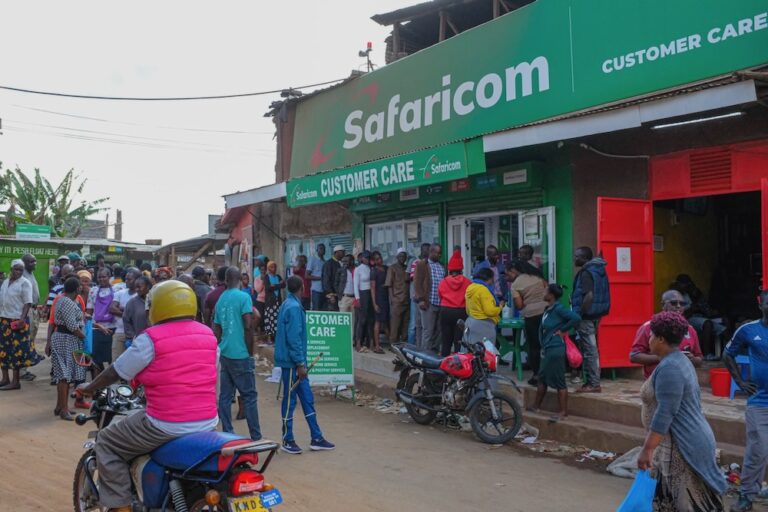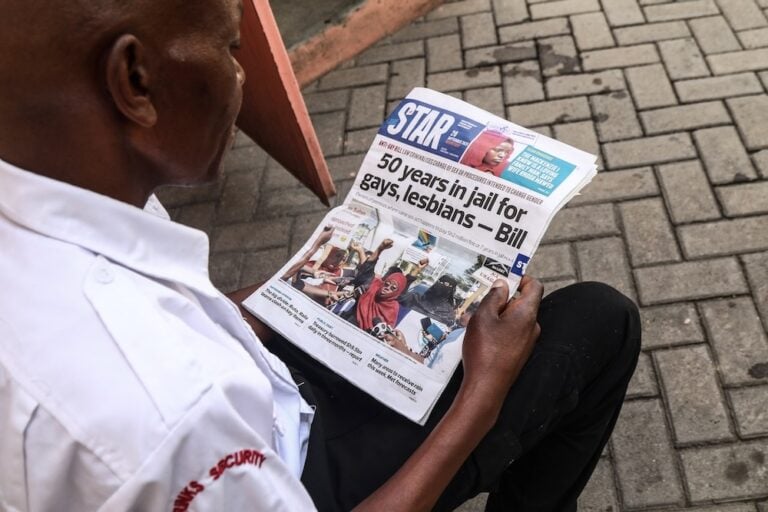Exiled Somali journalists living in Nairobi were in disbelief this week when daily newspapers published a statement by the Department of Refugee Affairs ordering all Somali refugees to move to refugee camps. The order followed a series of grenade attacks in Kenya's northeastern regions, where many exiled journalists live.
(CPJ/IFEX) – 21 December 2012 – The following is a CPJ Blog post:
By Tom Rhodes/CPJ East Africa Consultant
Exiled Somali journalists living in Nairobi were struck with disbelief this week when daily newspapers published a statement by the Department of Refugee Affairs ordering all Somali refugees to move to refugee camps. “The refugees, particularly those living in urban centers, are contributing to insecurity in the country,” the statement read. The acting commissioner for refugee affairs, Badu Katelo, said aid agencies including the U.N. High Commissioner for Refugees (UNHCR) must stop providing aid to those outside the camps.
The order followed a series of grenade attacks in Kenya’s northeastern regions, such as Garissa, and in Eastleigh, the predominantly ethnic Somali district of Nairobi, where many exiled journalists live. The attacks are suspected of being carried out by the Islamic militant sect Al-Shabaab, although the group has not claimed responsibility, news reports say. The violence has prompted Kenyan security forces to target hundreds of refugees residing in Eastleigh on suspicion of links to Al-Shabaab–a cruel irony for local exiled journalists, given that most of them fled to safety in Kenya precisely because of threats to their safety from Al-Shabaab back home.
Many exiled Somali journalists in Eastleigh and elsewhere can attest to the heavy hand of Kenyan security forces. Muhyadin Ahmed Roble was on his way home one evening last week in the Kairokoo area of Nairobi when members of Kenya’s paramilitary, the General Service Unit (GSU), were conducting operations in the area. They were investigating a December 8 grenade attack in nearby Eastleigh, which injured a member of parliament, according to news reports. Soldiers stopped Muhyadin outside his home and asked for his identity card. “I showed them my passport and press card but instead of releasing me they accused me of taking photographs while I had no camera on me at the time,” he said. The forces pushed Muhyadin to the ground, beat him with the butts of their guns, and even walked on him. “They surrounded, stepped on, kicked, and pushed him as he kept crying out, ‘why?’ said Moses Baraza, a night security guard who witnessed the beating. “As they did this, they continued asking where the people he interviewed were, and who had told him to take photographs,” Baraza said. They released Muhyadin after taking his wallet.
Deputy Police Spokesman Charles Owino told CPJ he would look into the matter, but repeated follow-up calls and text messages went unanswered.
Muhyadin is one of the few exiled Somali journalists who have managed to continue in the profession while living in exile. He contributes to several websites, writes political analysis for the U.S.-based security think-tank Jamestown Foundation–and all the while studies journalism at the United States International University. He thought that his professional status would protect him from being profiled in the fight against Al-Shabaab. Instead, it caused more misery. “Before that night, I thought that if I had a press card, I was safe. Now I don’t believe so,” he said.


